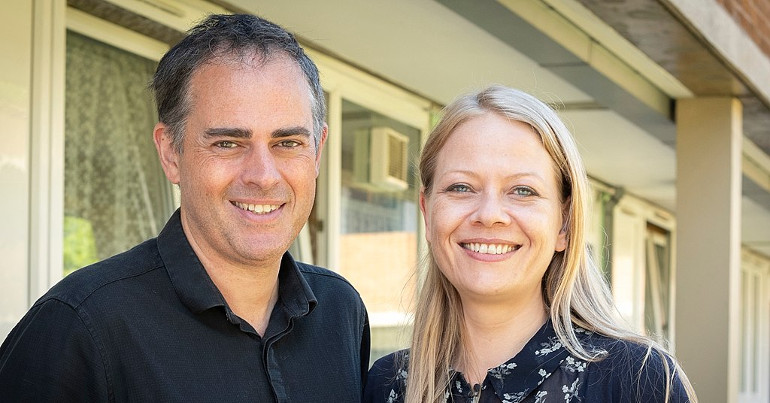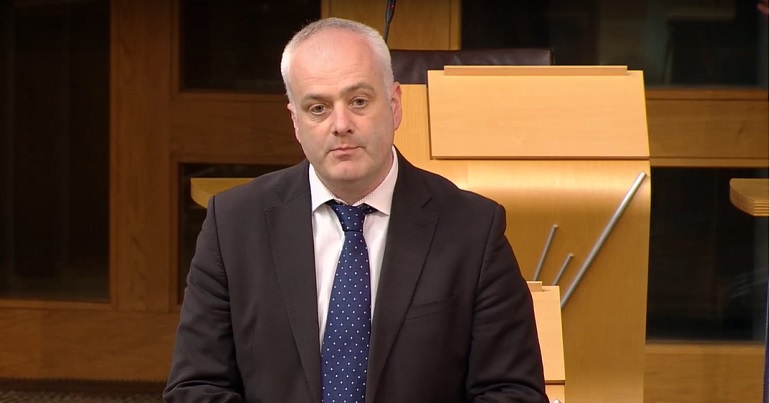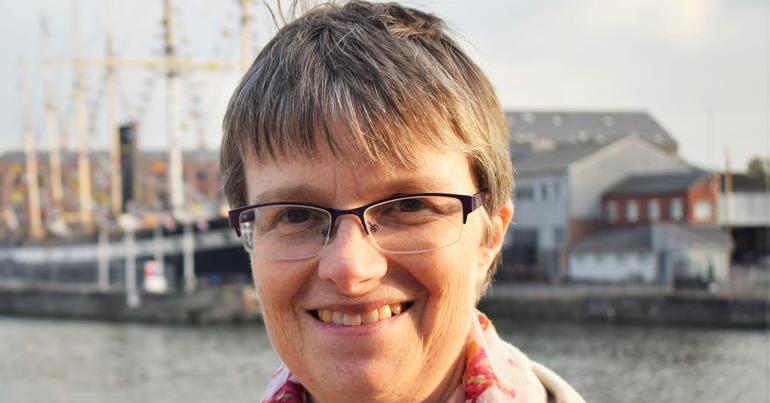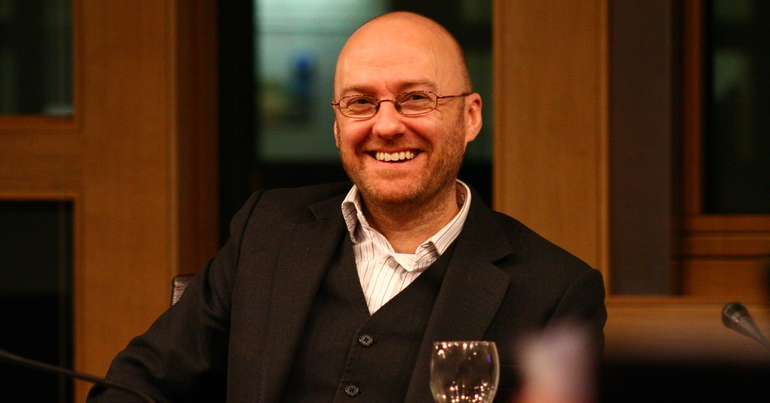Wales Green Party picks new deputy leader – UK Green news round up issue 54
Lauren James becomes new deputy leader of the Wales Green Party

While most of the media’s eyes will be on the election of the new Labour leadership team, there have been changes at the top of the Greens too. The Wales Green Party this week selected a new deputy leader.
Gwent Green Party member Lauren James will succeed Mirka Virtanen in the deputy leadership post after Virtanen stood down last year.
James has been an active member of Wales Green Party for 5 years, volunteering at both a local and national level. A single parent of three children, she has lived in Newport, South Wales for six years. Since 2017 she has worked from home as a social media manager alongside publishing a green lifestyle blog for parents.
James will join the existing leadership team of Anthony Slaughter, leader and Duncan Rees, her fellow deputy leader.
James told Bright Green she was “thrilled” to take on the role. She said:
I’m thrilled to be selected as Wales Green Party Deputy Leader. In these uncertain times it’s been heart-warming to see the community come together. From frontline NHS staff, teachers and other key workers to parents educating their children at home, Wales has shown resilience and solidarity in a crisis unlike anything in living memory.
I look forward to being a strong Green voice for women, children and young people in Wales.
Wales Green Party leader Anthony Slaughter described James as “invaluable”. He told Bright Green:
I am looking forward to working with Lauren in her new position. As a colleague, her passion and commitment in building and promoting our party and its values has been invaluable and I am confident she will bring these strengths to her new role, helping Wales Green Party to deliver our vital messages on climate justice and social justice in these challenging times, and securing the elected Green representation that Wales so desperately needs.
The changes at the top of the Welsh Greens come as the party prepares itself for crucial Welsh Assembly elections in 2021. The Greens currently hold no seats in the devolved body. But polling from 2019 put the party on track to win as many as four seats in the next election.
The Wales Green Party is a semi-autonomous body within the Green Party of England and Wales.
Sian Berry and Jonathan Bartley call for new Labour leader to commit to proportional representation

This week Keir Starmer was elected as leader of the Labour Party, with a compelling lead over second placed rival Rebecca Long-Bailey. But before this was confirmed, Green Party of England and Wales co-leaders Jonathan Bartley and Sian Berry wrote to Starmer and his fellow leadership candidates asking them to “do the right thing” and back major electoral reform.
In the letter, Berry and Bartley highlighted that the Labour Party is an anomaly among its sister parties. The pair claimed that no other social democratic party in a “major developed country” supports the first past the post system currently used in the UK.
They wrote:
In Labour, as in our party, the majority of members support a proportional voting system, and no other socialist or social democratic party in any major developed country still supports first past the post.
Whichever one of you is elected, we offer our support in the collegiate spirit these times deserve, and we would like to meet with you virtually as soon as you are able, to discuss both the immediate crisis and how we build a better politics for the future.
Berry claimed that a proportional electoral system would benefit all voters and strengthen democracy. According to the Guardian, she said:
All voters benefit from a fairer electoral system, no matter which party they support, because if votes match seats then people’s views really matter and our democracy is strengthened
Greens respond to COP26 cancellation

From the Premier League to Glastonbury and from the Edinburgh Fringe Festival to the Olympics, major events are being cancelled left, right and centre as the world battles the global coronavirus pandemic. This week another event was added to that list – COP26, the international climate change negotiations. The event – originally set to take place in Glasgow this November – has now been postponed until 2021.
Leading Greens have responded to this news. Mark Ruskell MSP, the Scottish Green Party’s climate change spokesperson stated that the cancellation was “disappointing”, but argued both the coronavirus crisis and the climate crisis demonstrate the need to build a new social and economic system. Ruskell said:
While it is naturally disappointing that COP26 has now been postponed, it’s clear that it would have been almost impossible to make the necessary preparations and negotiations in the face of the current COVID19 crisis.
The climate and health emergencies mean that we must re-build the economy in a way that that supports people and creates new jobs in sectors that are vital for our future. That will need fresh thinking about how governments can develop a Green New Deal that intervenes and invests in the economy, creating fair work while also improving our health and wellbeing.
When COP26 does eventually arrive in Glasgow next year I am confident that global leaders will be more determined than ever to ensure that meaningful climate action is achieved, especially if there is a new US President.
These sentiments were echoed by Green member of the House of Lords Natalie Bennett. In an article for Green World, she argued that there were “huge possibilities” for COP26 when it eventually does take place. She wrote:
The ground for a Green New Deal has been well and truly laid, practically and philosophically.
So COP26 in 2021 in Glasgow has huge possibilities, even stronger hopes than it had for this November.
Molly Scott Cato hits out at Victor Orban’s authoritarianism

Most European countries have now faced the major challenges of dealing with the coronavirus crisis. But they’ve taken radically different approaches. Hungary’s far-right prime minister Victor Orban has faced heavy criticism for the authoritarian nature of his response.
Among those to level criticism as Orban is former Green MEP Molly Scott Cato. This week, Scott Cato accused Orban of attempting to exploit the crisis in order to “overturn democracy”.
Writing for Green World, Scott Cato argued:
In this unprecedented health crisis, governments across the world are stepping in to restrict our freedoms while simultaneously providing us with economic support. The positive consequence of this is that we will never again buy the myth of government helplessness that has been used as an excuse for government inaction on a range of issues, most obviously the climate emergency.
However, the darker side of this coin is the way unscrupulous politicians can use our fear to take untrammelled power for themselves now and undermine democracy in the longer run. This is clearly happening in Hungary, and given government’s stated admiration for that regime, we should pay close attention to what happens in our own country. As the health lockdown is relaxed, we should also demand a rapid end to emergency powers and campaign for a revitalized democracy.
Patrick Harvie slams private companies profiting from coronavirus crisis

This week companies involved in Private Finance Initiatives (PFI) in Scotland’s NHS showed their true colours. Companies at three Scottish hospitals refused to waive car parking charges for NHS staff and visitors. With the Scottish government having agreed to subsidise hospital parking, this would see nearly £1 million of public money landing in the pockets of private companies.
Among those to criticise the practices of the PFI companies was Scottish Green Party co-leader Patrick Harvie. According to The Ferret, he said:
This is a time when our front line NHS workers are being recognised and appreciated more than ever. Indeed, most people are looking for ways to help them.
Instead of maximising their profit at the expense of these workers, the firms that run our PFI hospitals should be playing their part in the growing solidarity by waiving the outrageous charges they place on our NHS.
At a time when we must all play a part in keeping each other safe, it is unacceptable for companies like this to be looking for new ways to skim profits from our hospitals.




Leave a Reply